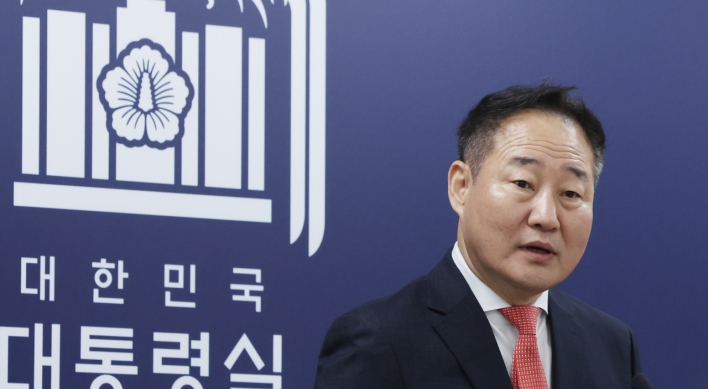Calls for shareholder activism rise after Samsung merger
By Korea HeraldPublished : Dec. 12, 2016 - 18:08
Controversy over a merger between two Samsung affiliates last year has been rekindled due to the influence-peddling scandal involving President Park Geun-hye, sparking serious discussion on ways to strengthen shareholder rights and signaling a possible change in the corporate governance of Korean companies, experts said Monday.
A set of principles that target institutional investors to help them better engage in corporate governance for shareholders’ benefits is likely to be adopted within this year.

Corporate Governance Service, a monitoring and research institution under Korea Exchange, said it would introduce a Korean version of the UK’s Stewardship Code after collecting ideas from various areas of society.
The guidelines urge fund managers and institutional investors to disclose their reasons for exercising voting rights at shareholder meetings, and explain to shareholders if their actions do not comply with any of the principles in the code.
There have been allegations that the state-run National Pension Service had approved the landmark deal between Samsung C&T and Cheil Industries under political pressure from Cheong Wa Dae.
The prosecution has been investigating suspicions that the NPS sided with Samsung even though the pension fund operator knew the deal could inflict huge losses to itself. The NPS was the largest institutional investor of Samsung C&T, before the merger. Critics have said the NPS should have worked to readjust the merger ratio to be favorable for the pension service, stressing its public role in operating funds levied from workers in Korea.
Institutional investors have been passive in voicing their opposition at shareholder meetings, data showed.
Of more than 18,000 shareholder meetings held in March, more than 96 percent of votes were exercised in favor of the company’s decision, according to Korea Investment and Securities.
The percentage of votes that objected and remained neutral to companies’ decisions were 2.2 percent and 1.4 percent, respectively.
“Institutional investors have so far exercised their voting rights in very limited occasions,” Yoon Tae-ho, an analyst at Korea Investment and Securities, was quoted as saying by Yonhap News Agency.
Institutional investors, however, are likely to exercise their rights in compliance with the Stewardship Code, to be introduced within this year, he added.
By Cho Chung-un (christory@heraldcorp.com)
A set of principles that target institutional investors to help them better engage in corporate governance for shareholders’ benefits is likely to be adopted within this year.

Corporate Governance Service, a monitoring and research institution under Korea Exchange, said it would introduce a Korean version of the UK’s Stewardship Code after collecting ideas from various areas of society.
The guidelines urge fund managers and institutional investors to disclose their reasons for exercising voting rights at shareholder meetings, and explain to shareholders if their actions do not comply with any of the principles in the code.
There have been allegations that the state-run National Pension Service had approved the landmark deal between Samsung C&T and Cheil Industries under political pressure from Cheong Wa Dae.
The prosecution has been investigating suspicions that the NPS sided with Samsung even though the pension fund operator knew the deal could inflict huge losses to itself. The NPS was the largest institutional investor of Samsung C&T, before the merger. Critics have said the NPS should have worked to readjust the merger ratio to be favorable for the pension service, stressing its public role in operating funds levied from workers in Korea.
Institutional investors have been passive in voicing their opposition at shareholder meetings, data showed.
Of more than 18,000 shareholder meetings held in March, more than 96 percent of votes were exercised in favor of the company’s decision, according to Korea Investment and Securities.
The percentage of votes that objected and remained neutral to companies’ decisions were 2.2 percent and 1.4 percent, respectively.
“Institutional investors have so far exercised their voting rights in very limited occasions,” Yoon Tae-ho, an analyst at Korea Investment and Securities, was quoted as saying by Yonhap News Agency.
Institutional investors, however, are likely to exercise their rights in compliance with the Stewardship Code, to be introduced within this year, he added.
By Cho Chung-un (christory@heraldcorp.com)
-
Articles by Korea Herald






![[K-pop’s dilemma] Can K-pop break free from ‘fandom’ model?](http://res.heraldm.com/phpwas/restmb_idxmake.php?idx=644&simg=/content/image/2024/05/09/20240509050541_0.jpg&u=20240509173751)












